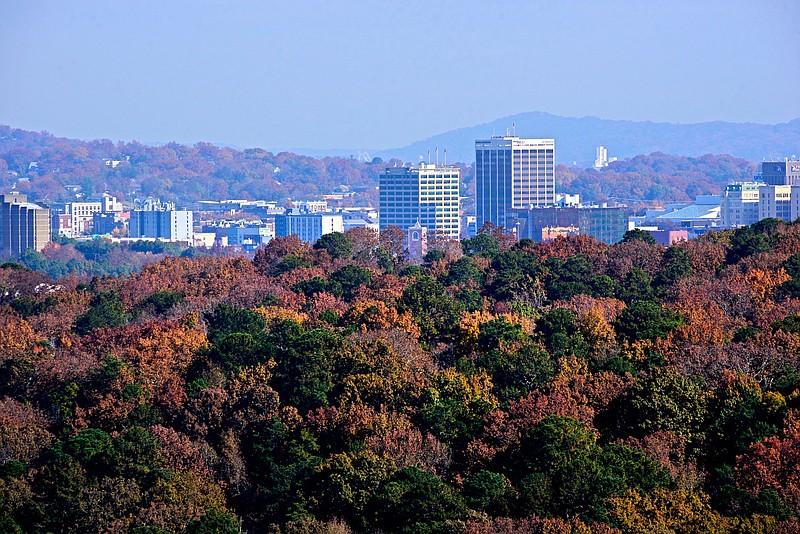Perhaps we're wrong.
Not about the numbers.
The numbers - based on census data - are clear.
Between 2010 and 2020, the African American population in our city declined. In that decade, some 5,872 Black Chattanoogans left Chattanooga.
And 5,279 white Chattanoogans moved here.
But the reasons?
"Why it's happening, we don't necessarily know," said Ken Chilton, associate professor of public administration at Tennessee State University. "We do know that African Americans in and around downtown neighborhoods have been either displaced to suburban locations or are choosing to vote with their feet and move elsewhere for better opportunities, lower costs of living or whatever."
Last Sunday, Chilton presented during the Unity Group's 52nd annual MLK Week. He summarized this trend in two words.
"Black flight," he said.
We've shaped Chattanooga into our own version of Asheville, Austin, Boulder - beautiful, hip and white. With few citizens of color as integral parts of such place-making, then white leaders, well-intentioned or not, inadvertently create a city in their own image.
Chilton believes such place-making "has been promoted actively by civic elites, oftentimes by elected officials and oftentimes by leaders who've spent tens of millions of dollars to create a place for a certain demographic," he said.
I happen to agree.
But, for a moment, let's pretend Chilton and I are both wrong.
Pretend those 5,872 Black citizens freely and fully chose to leave. Forget place-making, sky-high rent and whiteness.
They just left.
Is this still not a tragic loss?
Are we not mournful?
No matter the reasons, the loss of 5,872 Black residents is a fundamental, critical and deep loss. Period.
With them goes intelligence, perspective, culture, voice, resiliency and political power. We may argue over economic or sociological reasons, but the deeper issue is one of the heart.
How much do we care that our Black brothers and sisters are leaving Chattanooga?
For economists, this should equate to a loss of economic value. For believers, a loss of the kingdom of God. For urban planners, a loss of diversity and potential.
"In today's increasingly multiracial society ... there are costs - financial, development, even physical - to continuing to segregate as we do," writes Heather McGhee.
Her book "The Sum of Us" outlines the many ways that a lack of diversity hurts us educationally, economically, spiritually, environmentally. Page after page, her book illustrates the toll - often in dollars - that racial isolation can bring; McGhee told the Association of American Medical Colleges that our U.S. economy lost $16 trillion over the last 20 years from our racial divide.
When we believe that programs helping others will hurt us - housing, education, infrastructure, salaries, health care - then we will lose, she claims.
In comparison, an integrated city is a better city. Students in diverse schools are smarter. Residents in diverse cities suffer less pollution. Their communities are more resilient and less volatile, McGhee writes.
"Exposure to multiple viewpoints leads to more flexibile and creative thinking and greater ability to solve problems," she writes.
Integration in all its forms offers a healing vitality, richness and humility that segregation never can.
"We truly do need each other," McGhee says.
Thankfully, there are opportunities.
Let the city and county issue a clarion call for the development of a Black middle class and a recruitment of Black families, creatives and leaders here.
Foundations tie grant-giving to diversity on nonprofit boards and staff. Foundations invest in a fund controlled by Black Chattanoogans.
We can carefully protect and honor the Westside community. As riverfront growth draws closer, the Westside grows more vulnerable; we have an opportunity to once again attract worldwide attention as a city able to integrate market growth for the clear and wholesome benefit of a historically forgotten neighborhood.
Forget right or wrong.
When we lose 5,872 Black neighbors - no matter the reasons - then we are losing part of Chattanooga.
David Cook writes a Sunday column and can be reached at dcook@timesfreepress.com.
